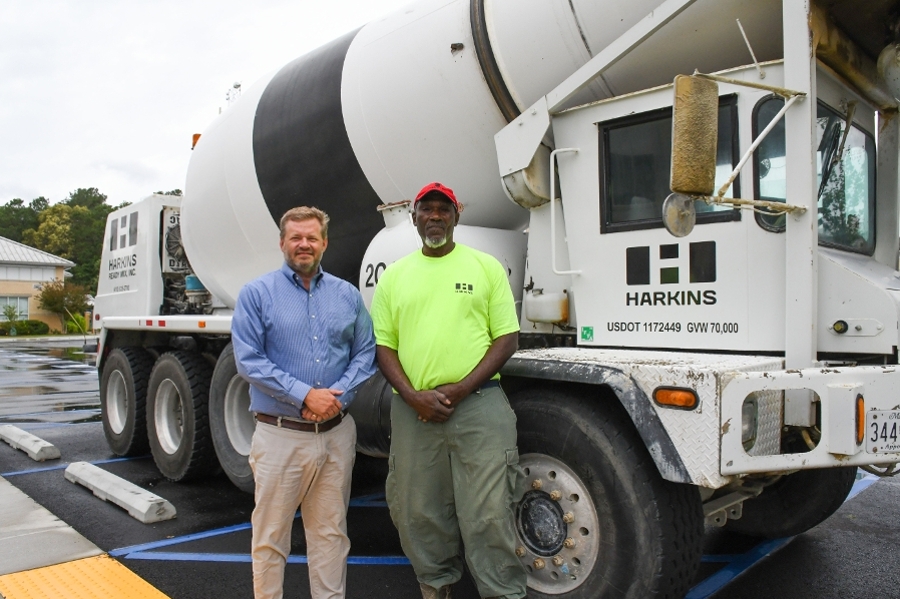CDL PROGRAM IS A DRIVING FORCE FOR THE LOWER SHORE ECONOMY

Salisbury, MD - For the past 20 years, Wor-Wic Community College has been building a transportation workforce for the Lower Eastern Shore. The college's commercial driver's license (CDL) training program held its first class in August 2003, and has been growing to meet the region's needs ever since then.
"I'm very appreciative of Wor-Wic and the training it provides - it's great for our community," said David Harkins, owner and president of Harkins Concrete. "When I hire people out of this CDL program, I know that safety has been stressed. I want all of my people to be safe and conscientious."
CDL graduate Ronald Gale of Delmar, Md., joined Harkins two years ago. "During the pandemic, I saw that drivers were in high demand," he said. "It made me realize that driving could be a good career." Gale has had great success. "I got my license the week after I graduated, and I've been driving ever since," he said. "CDL gives you a lot of options depending on your situation. If you want to see the country and travel, you can; if you have a family, you can stay local. With CDL, you can find a job anywhere."
The CDL program has grown from eight graduates in its first year to 129 in 2022. Altogether, the program has added more than 1,000 commercial drivers to the region's workforce.
Pete Phoebus, vice president of transportation for Cato Oil in Salisbury, says having the program is good for local businesses. "It's a very useful source of qualified drivers, and Wor-Wic puts out a quality candidate," he said.
Rose Stigall of Snow Hill joined Cato after graduating from Wor-Wic. "I have two sons, so I wanted to drive locally," she said. "I really love my job. It's stress free, and Cato is like a family."
Her colleague and fellow Wor-Wic CDL participant Ronnie Savage of Delmar, Md., agrees. "Traffic and weather can be a challenge, but the people are the best part," he said. Savage said it has been a positive career change for him. "I was a flagger, and when it rains, you don't work," he explained. "I was at home one day, saw a tanker, and thought, that's what I want to do."
The program was founded with that kind of stable, reliable employment in mind - local poultry companies advised that commercially licensed drivers were always in need. That's still the case.
"It's an industry that's never going away - you'll always have a job," said continuing education and workforce development CDL coordinator Mark Miciotto. He invites local companies into his classes so they can explain to potential drivers what to expect from the work they offer.
It was helpful to student Herschelle Bryant of Salisbury. "I liked hearing about the different options," she said. "I want to drive tankers and stay local, because I just had a baby," she said. "A job that pays well is important, too." Professional drivers are in demand and median earnings are $20.45 per hour.
Miciotto says the eight-week program can make a meaningful change in students' lives while benefitting the community. "They're being productive members of society who are building our community," he said. Sometimes the building is literal. "Drivers from our program go to places like Harkins and pour concrete - they just worked the Ross building in Salisbury. I like to see my students using their license, making money and changing their lives. Their success is my reward."
Many participants are eligible for grants and scholarships that defray the cost of tuition. Visit www.worwic.edu for information about the CDL program.
From left, David Harkins, owner of Harkins Concrete, and Ronald Gale, a graduate of Wor-Wic's commercial driver's license program, say the program provides opportunities for individuals and businesses.


2.jpg)